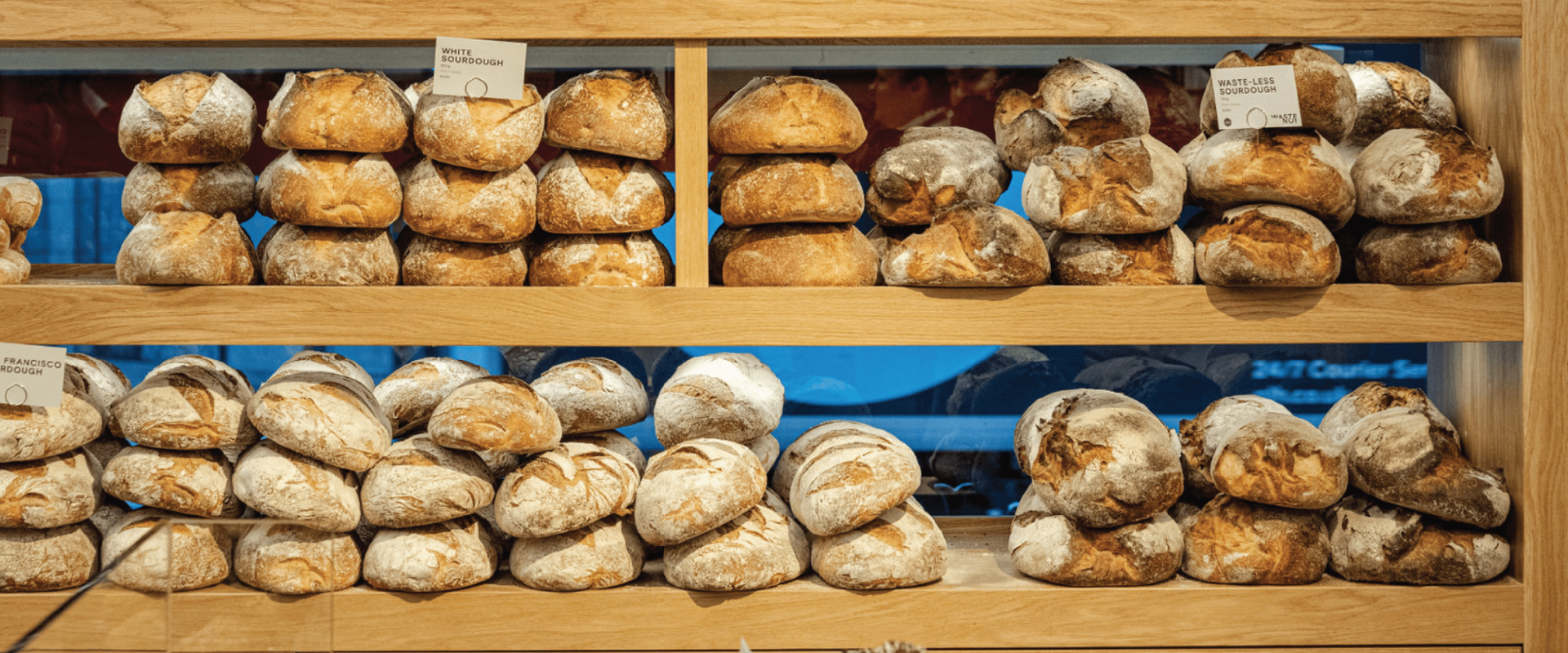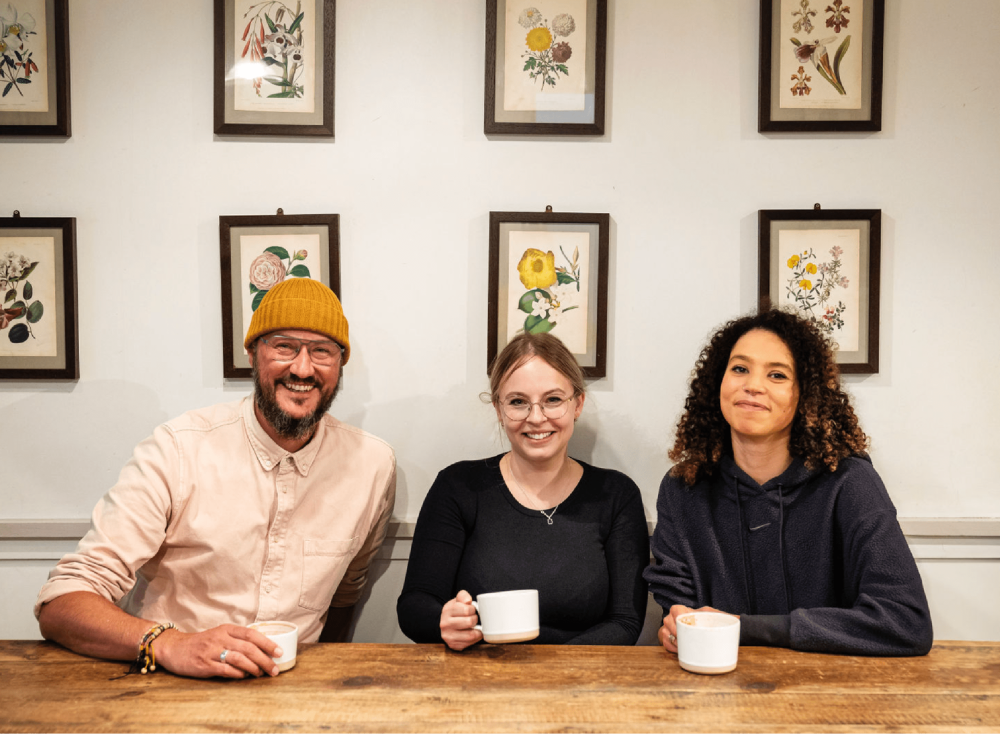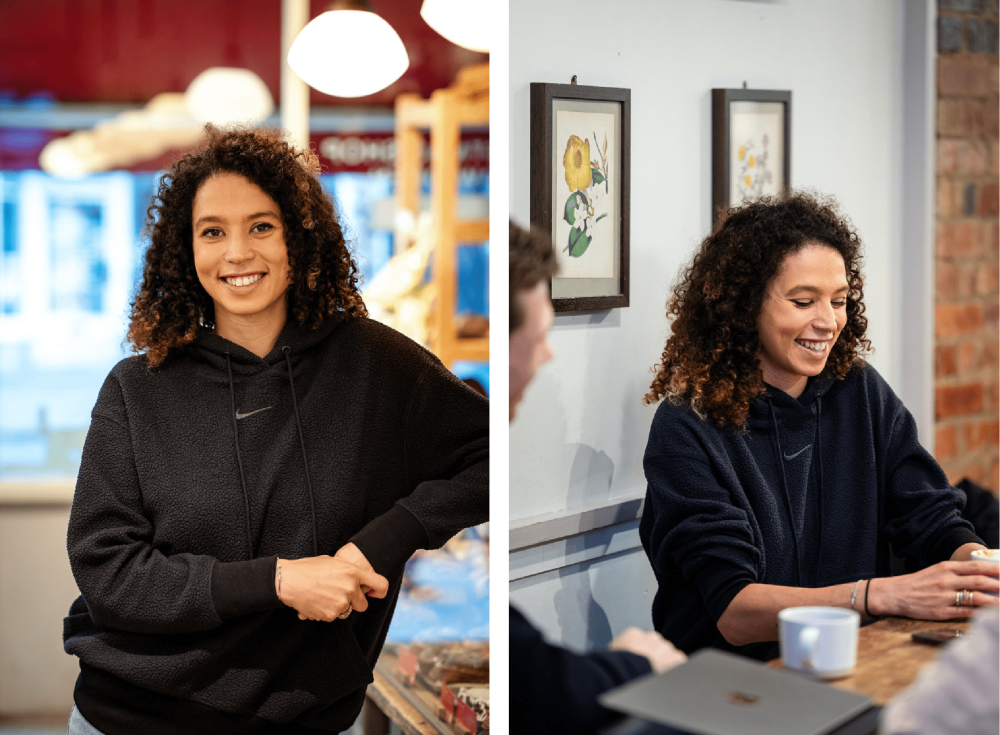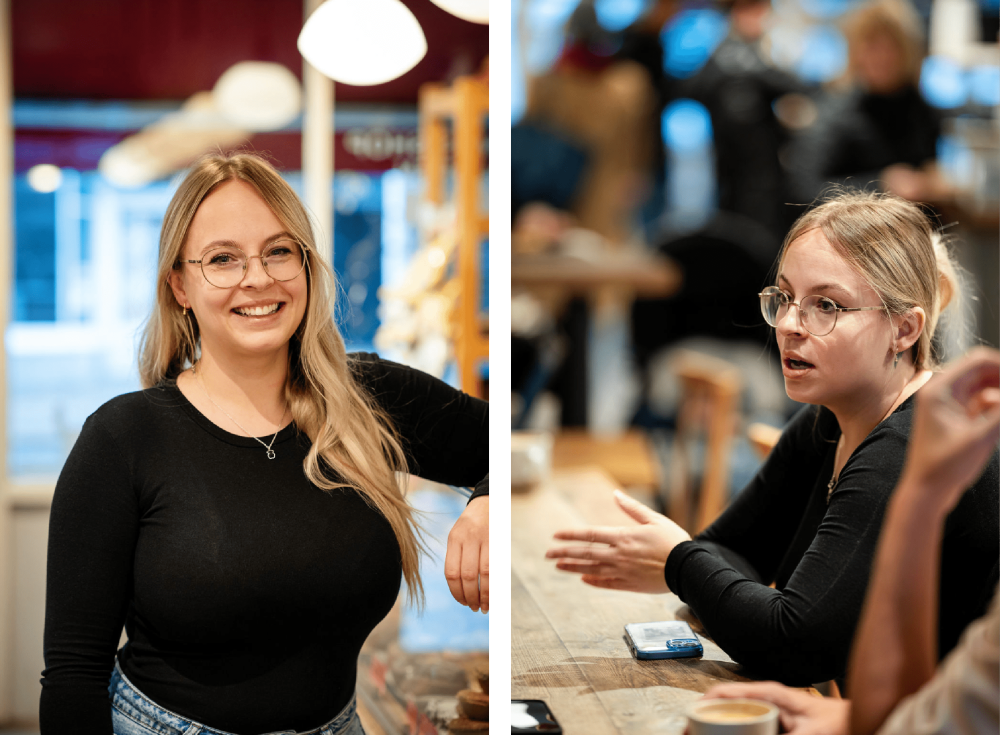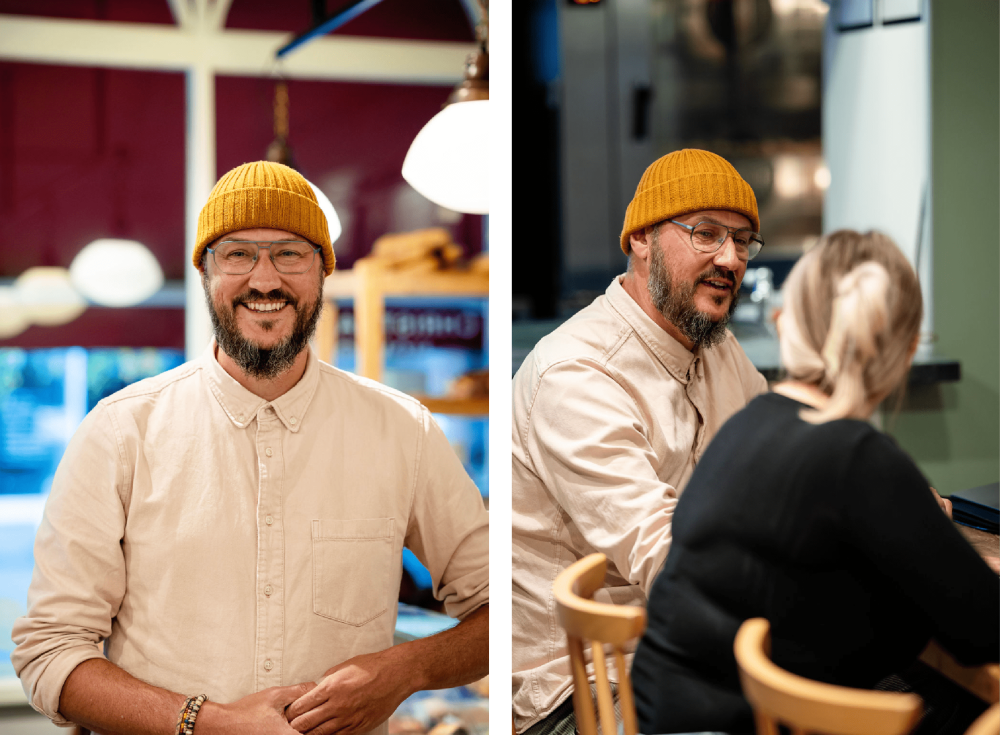Photography: Kat Antos-Lewis
Through our partnership with Neighbourly, we are expanding our impact, connecting our surplus food to a network of over 29,000 local charities who work tirelessly to feed their communities. For bakers, this is all instinctive: to ensure everything that comes out of the oven is eaten, shared, or used again. Here, we meet the people making sure that our spare bread finds its way to various corners of our neighbourhoods and is shared among those who will appreciate it the most.
In the quiet hours of the morning, our bakers are already at work, carefully measuring, mixing and kneading. By their very nature, bakers always ensure there’s enough to go around, which is why at GAIL’s we bake plentiful amounts each morning. This commitment means that we sometimes have a little extra left at the end of the day. Rather than seeing it as a surplus, however, we view it as an opportunity to make good food go further, to nourish and sustain people in our communities.
We have always looked to donate as much of our leftover food as possible to the community. However, it hasn’t always been easy to manage and maintain collections. Coordinating efficient distribution and reaching the right people at the right time is no small feat. We wanted to do more, and better, but we needed help. That’s where our partnership with Neighbourly began.
Neighbourly have streamlined the process of food redistribution with their extensive network of over 29,000 charities and community groups. These are organisations on the ground, understanding community needs in real-time and ensuring efficient distribution. Now, each of our bakeries is directly linked to up to three charities, both local and national, ensuring our surplus finds its way to more tables, feeding more of those who might benefit from a fresh loaf or pastry. Our donated food is the same high-quality product that fills our shelves every morning: freshly baked and perfectly good.
The change initiated by Neighbourly isn’t subtle. So far, the platform has facilitated over £298m of impact into local communities across the UK and Ireland, with an ambitious goal to deliver £1bn of positive impact by 2025. We’re proud to be part of a system that, with Neighbourly’s expertise, makes sure good food is never wasted. Our day’s end routine has taken on a new light. Each leftover loaf, rather than signifying excess, now represents an opportunity – a chance to further support and nourish our communities.
Behind it all are our people and bakery teams who collaborate with volunteers and charities within Neighbourly’s network. Together, they are the driving forces that ensure surplus food gets into the right hands. Recently, we invited three of them for coffee and a conversation at our bakery in West Hampstead to hear what the initiative means to the people making it happen, and to discover what impact our partnership with Neighbourly is already having after being initiated in September 2023.
Pictured above, from left: Richard Exton, Head of Neighbourhood Marketing at GAIL’s. Gabi Nowakowska, West Hampstead Bakery Manager. Sophie Estelle, Manager of Grace House at Single Homeless Project.
Sophie Estelle, Manager of Grace House at Single Homeless Project
“I manage two female-only accommodations, one of which is a complex needs service for disadvantaged women often suffering from mental health disorders and battling with substance use. The other project is for women who are fleeing violence. We support women with no recourse to public funds, which means they have no access to benefits and they’re not allowed to work. Within that cohort, there is a lot of malnutrition, and the women who come to us are unlikely to cook for themselves, so having food like this to give to them really makes a difference to their lives.
“There’s been quite a lot of research recently around nutrition and homelessness; most people who are homeless are completely malnourished because they just aren’t feeding themselves properly. So, food like this goes a long way to counter that. Bread is great because we can slice it and freeze it, and then the women can have it for toast.
“It’s about people from lots of different backgrounds and experiences coming together, having a good time and eating – that’s the power of food.”
“Sometimes the clients come in and pick up the food and then distribute it to the other women, which builds their confidence and independence. That’s something we want to do more of, so I think the future is about building the relationship with GAIL’s. One of the things I’m interested in from a community perspective is developing a social enterprise scheme. We have many women who want to get into work or want to volunteer or learn skills, and I want to work with local businesses more to create opportunities for them to do that. Even if it’s just a day, the self-esteem that would be generated… I can’t tell you how transformative it would be for them.
“The other thing we do with the food we collect is cook together because we want to build our clients’ sense of independence and their life skills. It’s interesting because often, to begin with, people are quite shy. We have women from all over the world, so everyone is cooking different cuisines. Through the act of cooking you see women start to open up, to chat, to start laughing. Then, everyone sits down and eats together. The positivity from that is enormous. It’s about people from lots of different backgrounds and experiences coming together, having a good time and eating – that’s the power of food.”
Gabi Nowakowska, West Hampstead Bakery Manager
“Bread connects people – you see it in many cultures. My partner is from Spain and his family eats bread with every meal; it’s always on the table to share. So not only is it a shame to waste good quality food, but it is also a shame to waste the power bread has to connect people in the act of sharing it.
“We’d been working previously with a few charities but with Neighbourly it’s easier than ever to make a positive impact with our surplus food, and to know exactly where it’s going. And, because we work with more than one charity, if one of them doesn’t collect, another one will, so nothing goes to waste.
“Bread connects people”
“As we know, food is expensive, but everyone needs to eat. I hate seeing items being thrown away – it’s just hard to watch, especially at the moment. So it’s very nice to help others, especially when so much love goes into our food – the bakers have to get up so early and work hard to make our bread. Now we can share good quality and nutritious food, which is a nice mix of bread, pastries, yoghurt and salads, meaning a more varied offering for the charities.
“The whole team here are very into the initiative, so we make sure everything that can be passed on can be. Next, I would like to help Single Homeless Project with their events, not only with food at the end of the day but also perhaps at coffee mornings, for which we could share some.”
Richard Exton, Head of Neighbourhood MARKETING
“Our partnership with Neighbourly goes back to what GAIL’s is – we’re a modern neighbourhood craft bakery, and being integrated into our communities is part of our DNA. We’ve always done charity donations but it was never recorded or made official. Teaming up with Neighbourly now lets us record and measure the kind of impact we have through our donations, and we can start building relationships with specific charities.
“It requires a bit more focus and planning, but I think the uptake we’ve had shows the passion we’ve got in our bakeries. As a baker who is making food every day for others to eat, it must be heartbreaking if that goes to waste. One of the key things about Neighbourly is that it allows our bakeries to be connected to multiple charities, so if one can’t collect surplus food another can. That supports people like Gabi and her team, who are passionate about all the food we make being sold, shared or reused in some way.
“We’re a modern neighbourhood craft bakery, and being integrated into our communities is in our DNA.”
“I have ambitions for what we can do next. If we can get to a place where we can confidently say 95 per cent of our eligible food surplus is going to good causes, then we can move on to the next thing, which is about what we do with products that are currently not eligible, like cooked food. And then a step up from that is how do you start to support charities outside of food donations – how can we donate some of our time, for example? It’s about creating a connection with our communities so that, from that one starting point of bread, we can have a much more significant positive impact.
There are so many reports out at the moment about how people are struggling, and we have the potential to make an impact on thousands of individuals. One of our bakeries has four charities connected to them, and when you look at the reach of those charities, you’re talking about potentially benefiting 10,000 people. The beauty of it is that we can really start to comprehend the impact we’re having.”
